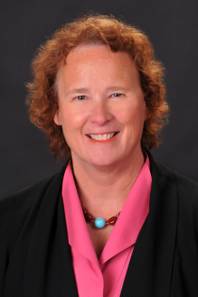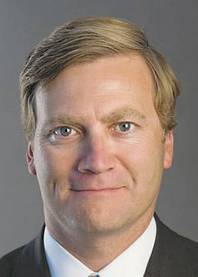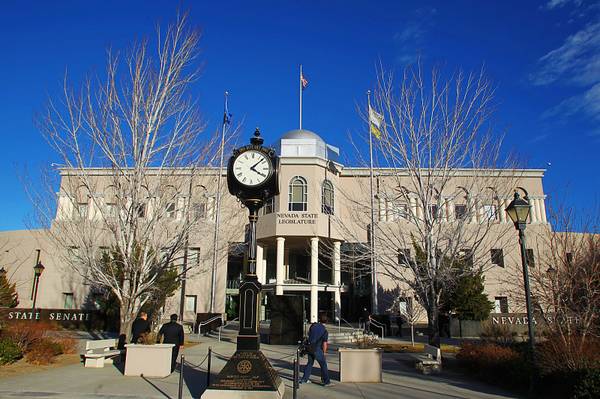
Sheila Leslie

Greg Brower
Sun coverage
The most intriguing political contest that hasn’t been splashed on television screens statewide might be a legislative Senate race here in the old part of Reno — Senate District 15, a swing district inside a swing county inside a swing state.
It’s one of five competitive state Senate races that will determine which party controls the state’s upper house in 2013.
But this race has the added drama of pitting two veterans of Nevada’s political class with very different views on the role of government against each other: Sen. Greg Brower, the Republican incumbent, and former Sen. Sheila Leslie, the Democrat who resigned her safe seat in February to move into a house she had bought in the district.
Part of what makes this race so interesting — and what is destined to make it fiercely contested — is that the voters here are moveable.
In 2008, Democrat Barack Obama won the district, as did Senate Majority Leader Harry Reid in 2010.
But Republican Gov. Brian Sandoval also won the district two years ago. And Senate District 15 is the old district, albeit with different boundaries, of the Republican icon of Northern Nevada, the late Sen. Bill Raggio.
Both Brower and Leslie agree the race offers a stark choice to voters — a choice that could have broader implications for how the state is run.
“Most fundamentally, the difference is our view of the role of government in society,” Brower said. “I don’t believe state government is the answer to all problems in our society.”
Leslie put it this way: “This race really frames the choices Nevada faces. We can face up to the real problems of tax reforms, or keep pretending that nothing is wrong.”
Brower was appointed to the seat after Raggio resigned before the 2011 Legislature. A former assemblyman and U.S. Attorney, Brower is viewed as a future potential candidate for statewide office.
While he arrived at the Legislature with the more moderate establishment backing — Raggio supported his selection — he voted against a tax compromise in 2011 that was supported by Democrats and Republican leadership, including Gov. Brian Sandoval.
Leslie served for 12 years as an assemblywoman and was a state senator for the past two years. She became known as a vocal advocate for services for the poor and a force for raising taxes.
While there are other lawmakers who might be more ideologically liberal, she is possibly the most effective progressive lawmaker in recent years. Friends and foes alike attribute her success to her ability to strike compromises, at times, with Republicans. She’s also adept at using the media to promote causes, from arguing that mining companies aren’t paying enough in taxes to advocating for the mentally ill.
But her support for higher taxes has drawn the enmity of conservative business groups and the industries she has targeted, like mining.
Leslie said the state needs more in taxes to fund government, particularly education.
She said Brower’s vote against extending existing taxes in 2011 was pandering to the “tea party” element of the Republican Party. At the time of the vote, Brower was in the middle of a contested Republican primary for the congressional seat that covers most of Northern Nevada. He lost that race.
“It’s offensive that someone would change their values and votes for personal political gain,” Leslie said. “Now that he’s in this campaign, he’s portraying himself as a moderate. But he might vote with the tea party again.”
Brower is striking a decidedly more moderate tone on taxes this year. He said he would vote in 2013 to extend the same taxes he opposed last year to prevent further cuts to education. He would also consider more taxes, but said, “It’s premature to go beyond that at this point.”
His vote in 2011 against the tax compromise wasn’t based on politics, Brower said. Rather, he believed the original budget — which relied on taking school construction and other local government money — was sufficient to cover expenses.
Brower charged that Leslie is too liberal for the district. The state’s slow economic recovery could be hurt by over-taxation and over-regulation of businesses, he said.
He pointed to her support for the unsuccessful Democratic tax proposal, a business tax on gross revenue, put forth in 2011.
“That would have completely undermined our slow and modest recovery,” he said. “It would’ve been devastating. It’s a good example of her unrealistic view of the government’s role and how economic growth can be significantly undermined by over-taxation, and overspending by government.”
Leslie defended her record on taxes. She believes Nevada needs more money for education — from paying teachers more to expanding early childhood education — in order to provide a better trained workforce to businesses. Large corporations in Nevada “pay nothing, or almost nothing,” while all of the states surrounding Nevada have some form of corporate tax, she said.
Brower argues the race goes beyond whether voters should send a single liberal lawmaker back to Carson City. He says the race could be the difference between whether it’s Republicans or Democrats controlling the agenda.
Democrats have a decisive majority in the state Assembly, and have held a slim majority in the Senate since 2009. Republicans are trying to take back control of the state’s upper house.
In part to help keep that from happening, Leslie executed a stunning move for a politician — she resigned her seat in a safe Democratic district to take on a race where Republicans have a slight voter registration edge.
Leslie said it was a personal move. She had bought a new house more than a year before to both downsize and move to a better neighborhood. Redistricting put her new house outside of her old district.
But Brower describes Leslie’s move as purely political.
“Clearly, Democrats are desperate to hang onto their stranglehold over the legislative process,” he said. “I think voters are inclined to restore some balance to the process.”


Join the Discussion:
Check this out for a full explanation of our conversion to the LiveFyre commenting system and instructions on how to sign up for an account.
Full comments policy